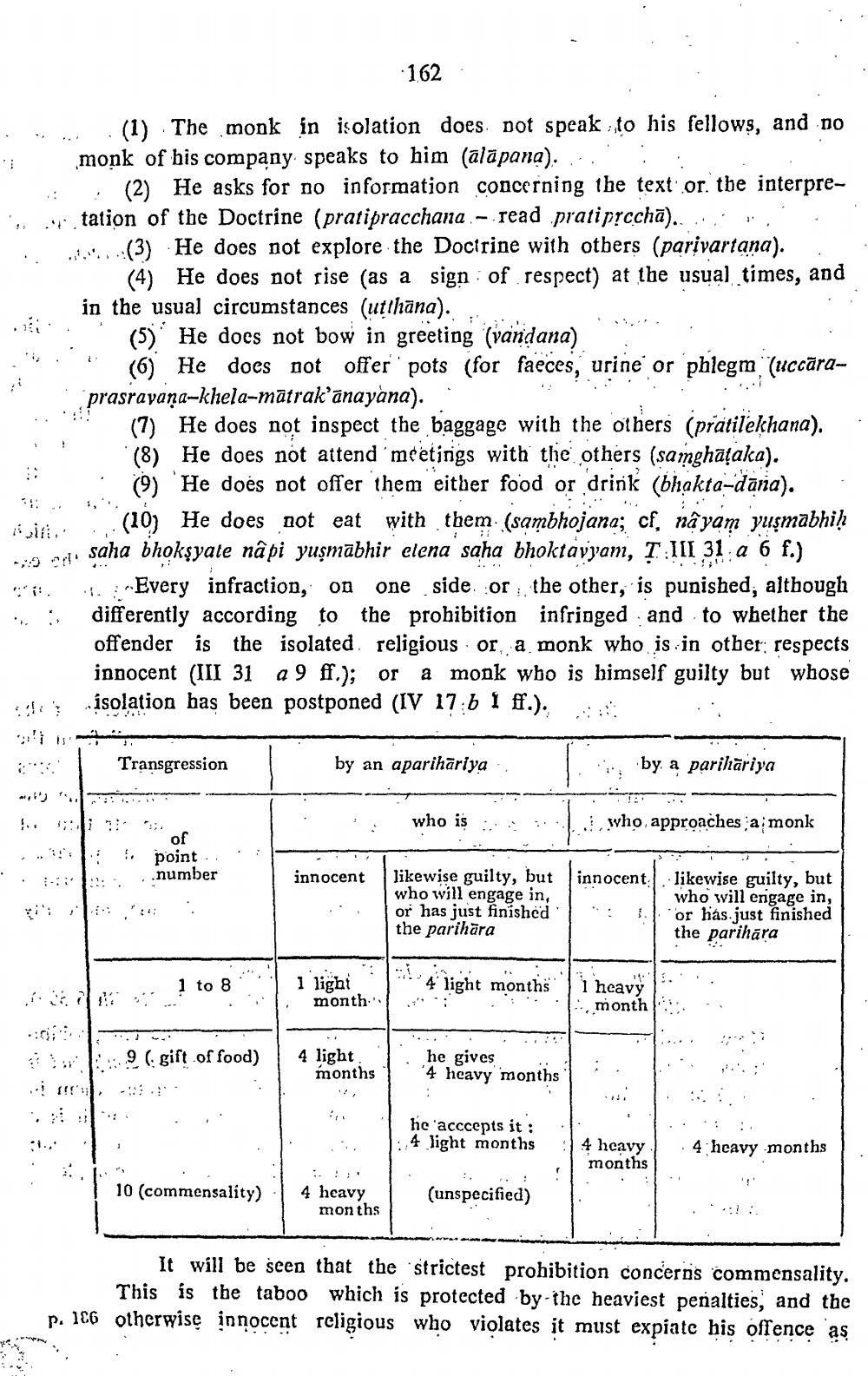________________
162
(1) The monk in isolation does not speak to his fellows, and no ; monk of his company speaks to him (alā pana)... : :
(2) He asks for no information concerning the text or the interpre. . tation of the Doctrine (pratipracchana - read pratipịccha)....
(3) He does not explore the Doctrine with others (parivartana).
(4) He does not rise (as a sign of respect) at the usual times, and in the usual circumstances (utthana)..
: (5) He does not bow in greeting (vandana) . . " (6) He does not offer pots (for faeces, urine or phlegm (uccāra
prasrayana-khela-mātrakanayana)..
(7) He does not inspect the baggage with the others (pratilekhana).
(8) He does not attend' meetirigs with the others (samghāļaka). : (9) He does not offer them either food or drink (bhakta-dana).
(10) He does not eat with them (sambhojana; cf, nayam yuşmabhiḥ wanap saha bhokşyate nâpi yuşmabhir elena saha bhoktavyam, ? :31 a 6 f.) i n : -Every infraction, on one side. or, the other, is punished, although in differently according to the prohibition infringed and to whether the
offender is the isolated. religious or, a monk who is in other: respects
innocent (III 31 a 9 ff.); or a monk wbo is himself guilty but whose L isolation has been postponed (IV 17:6 I ff.),
.
Transgression
by an aparihāriya
by a parihāriya
.
who is
who approaches a; monk
.:
.. ..
of point ..number
innocent
n
cent
likewise guilty, but who will engage in, or has just finished the parihara
1.
likewise guilty, but who will engage in, or has just finished the parihara
,
1 to 8
I lighi
1 month.
4
light months
.
1 heavy month
9 ( gift of food)
4 light. T
months
he gives '4 heavy months
.
hc'acccepts it : : 4 light months
4 heavy months
4 heavy months
10 (commensality) | 4 heavy
months
(unspecified)
it will be seen that the strictest prohibition concerns commensality.
This is the taboo which is protected by-the heaviest penalties, and the p. 126 otherwise innocent religious who violates it must expiate his offence as




